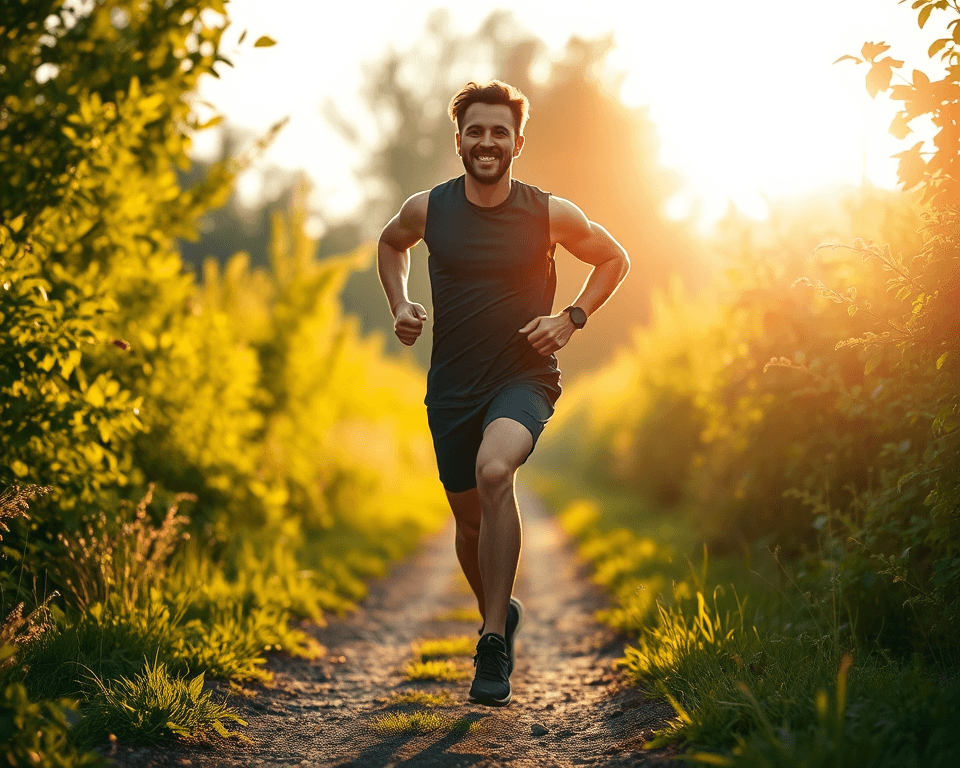Hey there! You ever feel that buzz of excitement when you accomplish something, big or small? That sense of pride can be addicting. But what if I told you that the secret to supercharging your self-esteem lies not in some self-help seminar, but right outside your door? Yes, you guessed it—exercise! Physical activity isn’t just about getting chiseled; it’s a mental boost that can change your whole game. Let’s dig into how moving your body can pump up that self-worth and give you the confidence kick you didn’t know you needed.
Key Takeaways
- Exercise rewires your brain, releasing those feel-good endorphins that boost your mood and self-perception.
- Activities like yoga and team sports help foster community, which can significantly elevate your self-esteem.
- Setting achievable fitness goals and celebrating small wins can keep your motivation high.
- Overcoming life’s barriers might just mean finding the right activity that resonates with you personally.
The Science Behind Exercise and Self-Esteem
Understanding Self-Esteem and Its Importance
Let’s chat about what self-esteem really means. At its core, self-esteem is how you view yourself—your worth and your feelings about your abilities. It shapes your perception and influences how you tackle challenges. High self-esteem = more confidence, less hesitation to take risks. And trust me, everyone can use a boost here and there.
Studies show that having a solid self-image leads to better emotional well-being, fosters personal relationships, and enhances overall life satisfaction. So, if you’re on a mission to ramp up your self-acceptance and build a more satisfying life, understanding and improving your self-esteem has to be on your radar.
How Exercise Physically Impacts the Brain
Now, on to the juicy stuff—how does physical activity actually impact our brains? Well, it gets real scientific here. When you engage in physical activities, your body’s chemistry kicks into high gear. Dopamine and endorphins are released, transforming your mood in the blink of an eye.
This isn’t just fluff; research shows that regular exercise creates long-lasting changes in brain structure and function. You can become more resilient to stress and better at handling negative situations. That’s like turning anxiety into sheer power!
“Exercise is a celebration of what your body can do. It’s not a punishment for what you ate.”
So, the next time you lace up your sneakers, remember that you’re not just burning calories—you’re boosting your brainpower.
Top 5 Physical Activities That Boost Self-Esteem
Let’s get practical. What are some physical activities that can help pump up your self-esteem? I’ve narrowed it down to my top five favorites, which are not only effective but also ridiculously fun!
Activity 1: Yoga and Mindfulness Practice
I can’t sing enough praises for yoga. This is more than just striking a pose; it’s about connecting with your inner self. Imagine rolling out your mat to a gentle soundtrack, breathing deeply, and feeling your worries melt away. That’s yoga magic!
Research shows that practicing mindfulness through yoga not only improves flexibility but also significantly boosts emotional well-being. You learn to accept yourself as you are while you stretch those muscles. Hello, self-acceptance!
Some props to consider:
| Yoga Equipment | Features | Price Range |
|---|---|---|
| Manduka ProLite Yoga Mat | Extra cushioning, eco-friendly | $85-$95 |
| Liforme Yoga Mat | AlignForMe markers for poses | $140-$160 |
| Gaiam Yoga Wheel | Help deepen stretches | $50-$70 |
Grab a mat, find a local class or an app like Down Dog, and you’re on your way to better self-worth.
Activity 2: Team Sports and Group Activities
Let’s be honest; nothing beats that high-fiving moment after scoring a goal or winning a match. Team sports can catapult your self-esteem because they instill a sense of belonging. You’ve got your crew; you’re working towards a common goal.
When you engage in team sports, you’re not just moving; you’re building friendships and community bonds. Plus, those group activities help ward off feelings of loneliness you might experience.
Think about joining a local soccer league or a volleyball group. Whether you’re a superstar or just starting, you’ll find your confidence rising as you interact and make new friends.
Activity 3: Strength Training and Resistance Workouts
Let’s talk about strength training. We’re all familiar with that exhilarating feeling of adding more weight or hitting a rep goal, right? That empowerment is real! Lifting weights can drastically improve your physical attractiveness and, more importantly, boost how you feel about yourself.
You don’t need to be a gym rat; even basic home workouts can do wonders. Grab some dumbbells or resistance bands, or consider a trusted program like BodyBoss or Beachbody On Demand for guided routines.
Statistics show that women who strength train report significantly higher self-esteem than those who don’t. Let’s get strong, folks!
Activity 4: Dance and Movement Classes
Ever feel like just grooving? Dance is honestly one of the best ways to tap into your self-esteem. Whether it’s hip-hop, salsa, or even Zumba, moving to the rhythm not only functions as a workout but lets you express yourself.
I’ve seen friends come alive in dance classes; they leave feeling lighter. The camaraderie found in group classes can offer strong social support, which is vital for boosting self-worth.
Looking for something fun? Try a class on DanceBody or Steele Fitness, where you can dance away your insecurities and leave with a renewed sense of self!
Activity 5: Outdoor Activities and Nature Walks
Sometimes all you need is to step outside. Nature itself is often underappreciated as a backdrop for exercise. Taking a walk or hike can do wonders, helping you reflect and regain mental clarity.
When I go hiking, away from the city’s noise, I feel instantly connected to something bigger. The beauty of the outdoors can be an instant mood lifter. Plus, cardiovascular exercise releases those endorphins that we love!
Plan regular walks or hikes on weekends to stay inspired. Check out local trails using AllTrails, where you can find paths of all difficulty levels in your area.
Practical Tips for Incorporating These Activities into Your Routine
Are you ready to inject these activities into your life? Let me guide you through some actionable steps you can take today!
Setting Achievable Goals
Listen, setting unrealistic goals is a surefire way to feel defeated. Instead, start small. Maybe you set a goal of doing yoga twice a week or attending one dance class a month.
Use the SMART goal method (Specific, Measurable, Achievable, Relevant, Time-bound). Write your goals down and track your progress. Trust me; you’ll feel motivated every time you hit a milestone.
Finding Support and Community
Your journey doesn’t have to happen alone. Seek out local gyms, clubs, and classes where you can meet like-minded folks. There’s something energizing about working out in a group. You push each other, motivate each other, and before you know it, you’ve built a community.
Apps like Meetup can help you locate gatherings centered on fitness or specific sports. The more, the merrier!
Celebrating Your Progress
Don’t skip this step! Celebrate every little victory. Did you finally lift that weight? Or maybe you completed your first yoga class? Give yourself some love. Write it down, treat yourself to a new workout outfit, or even share it with your friends.
I find that acknowledging progress is a huge part of building a positive self-image. It reinforces the idea that you’re capable and on the right path.
Overcoming Barriers to Physical Activity and Improved Self-Esteem
I get it—life can throw all kinds of obstacles your way, and sometimes, making time for exercise sounds impossible. But guess what, friend? You’re not alone, and nearly everyone faces these hurdles.
Addressing Time Constraints and Busy Lifestyles
We live in a fast-paced world, and time is a precious commodity. Start by prioritizing your health. Even if it means waking up 30 minutes earlier, that time can transform your day.
Opt for quick workouts; hiit routines or 20-minute strength sessions with apps like Freeletics can keep you engaged without taking hours out of your day. Some exercises demand little to no equipment—perfect for a hectic life.
Combatting Negative Self-Talk and Low Confidence
We’re our own worst critics, aren’t we? Sometimes it’s easier to beat yourself up than to lift yourself up. Start practicing positive affirmations to push back against negative self-talk.
Every morning, look in the mirror and tell yourself you’re strong, capable, and worthy. You can also keep a journal to jot down positive experiences from your workouts or how you’ve improved over time.
Finding the Right Activities for You
The key to sticking with an exercise routine? Finding the activities that spark joy for you. Experimenting is half the fun! Don’t be shy—try different things until something clicks.
Remember, what works for your best friend might not be your jam. If you don’t love running but adore swimming, then dive into the pool. There’s no one-size-fits-all when it comes to fitness.
Real-life Success Stories: Transformations through Physical Activity
There’s something magical about hearing how others have transformed their lives through physical activity. Let’s highlight a few inspiring stories that might resonate with you.
Inspirational Case Study 1: From Lack of Confidence to Fitness Enthusiast
Meet Sarah. She once hid behind oversized sweaters and felt utterly lost in her body. One day, she decided to join a local gym and try a group fitness class. Fast forward six months, and she not only lost weight but gained a huge community of friends.
She says, “I finally feel at home in my body. Each class pushes me to be better, and I love every minute of it!”
Inspirational Case Study 2: Finding Community and Belonging
Then there’s Mark, who took up soccer as an adult. Initially, he joined to work out, but what he ended up gaining was a buddy group that met up for barbecues and movie nights outside the field.
His story changed to: “I never thought I’d make lifelong friendships playing soccer. I found my tribe!”
Inspirational Case Study 3: The Power of Personal Reflection
Finally, let’s talk about Jane. After battling anxiety for years, she discovered that journaling after her workouts gave her clarity. Documenting her reflections helped her process emotions, promoting a healthier mental state.
“I can’t believe how much writing about my journey has helped me grow. I feel more secure in my skin than ever before,” Jane tells everyone who’ll listen.
Additional Resources and Next Steps
As you embark on—or continue—your journey toward improved self-esteem through physical activity, there are tons of resources out there to keep you informed and motivated.
Books and Publications on Exercise and Self-Esteem
Consider picking up a few recommended reads like “The Gifts of Imperfection” by Brené Brown, which dives deep into self-worth, or “The Body Keeps the Score” by Bessel van der Kolk, which connects physical and mental health.
Both will fuel your understanding of how movement can seriously empower your self-view.
Online Communities and Support Groups
The internet’s a goldmine for shared experiences. Websites like Reddit have communities focused on fitness and self-improvement. You’ll find encouragement and motivation while feeling connected to others on a similar journey.
Apps and Tools for Tracking Progress
Ready for some good tech to assist your journey? There are fantastic fitness apps like MyFitnessPal for calorie tracking or Fitbit for those health metrics that relieve the guesswork in your progress. Using technology can be a game-changer in tracking and celebrating your achievements.
Keep pushing, keep moving, and remember that every step you take toward physical activity is a step toward heightened self-esteem and improved mental health. You’ve got this!
Frequently Asked Questions
How can exercise specifically improve self-esteem?
Exercise can enhance self-esteem by promoting the release of endorphins, which improve mood and reduce stress. Engaging in physical activity also helps in building confidence through achieving fitness goals and nurturing a positive body image.
What types of exercises are best for beginners looking to boost self-esteem?
For beginners, activities like walking, yoga, and light strength training are excellent options. These exercises are manageable, promote social interaction, and help in slowly building confidence without overwhelming the individual.
Can I boost my self-esteem without joining a gym?
Absolutely! There are many ways to enhance self-esteem without a gym membership. Engage in activities like hiking, home workout routines, yoga, or community sports that can all be done outdoors or in a comfortable setting.
How often should I engage in physical activities to see improvements in my self-esteem?
To see improvements, aim for at least 150 minutes of moderate exercise per week. Regular participation in activities—whether it’s daily walks or weekly sports—can significantly enhance emotional well-being and self-perception.
What should I do if I feel anxious about trying new activities?
It’s natural to feel anxious when trying new things. Start by researching the activity to familiarize yourself with it, invite a supportive friend to join you, or begin with beginner classes designed to build confidence in a comfortable environment.
Are there exercises I can do at home to boost my self-esteem?
Yes, home workouts such as bodyweight exercises, yoga, or dance workouts are great for boosting self-esteem. These activities can be conducted in private, allowing you to focus on personal progress without feeling self-conscious.
Can improving my physical health affect my emotional well-being?
Yes, improving physical health through regular exercise directly correlates with emotional well-being. It can enhance mood, decrease anxiety, and foster a more positive self-image, leading to overall improvements in self-esteem.
What role does a support system play in enhancing self-esteem through exercise?
A support system, whether from friends, family, or workout groups, can motivate you, provide encouragement, and create a sense of belonging. This social interaction significantly boosts motivation and self-esteem as you share experiences and celebrate progress together.
How can I overcome negative self-talk when engaging in physical activities?
Combat negative self-talk by practicing positive affirmations, focusing on personal progress rather than comparison, and seeking feedback from supportive peers. Journaling your successes and reflecting on achievements can also help foster a more positive self-image.
Are there specific mindfulness practices that can complement physical activities?
Yes, incorporating mindfulness practices such as meditation, breathing exercises, or focused relaxation techniques can enhance the psychological benefits of physical activities. These practices can lower stress levels and increase mental clarity, aiding in overall self-esteem enhancement.










